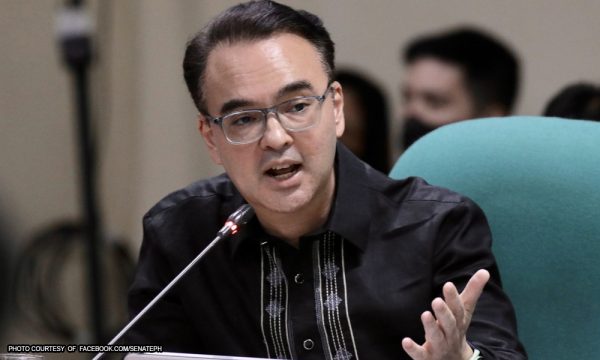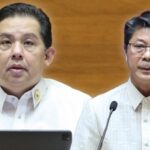Senator Alan Peter Cayetano has suggested that all government officials should resign and hold a snap election as a solution to the public’s loss of trust in the government.
According to Cayetano, although some politicians still have genuine supporters, public doubt toward those in power now prevails.
“I dare say, now more than ever in our history, politicians are suspects! People have lost trust in government and government officials. Honestly, who can blame them?” Cayetano stated in his Facebook post.
“So here’s a thought: What if we all just resign and allow a Snap Election. From The President, Vice President, Senate, and Congress. With One Important Addition – No Incumbent From The Above Can Run For 1 Election Cycle,” he added.
The senator emphasized that the government bureaucracy would continue to function, and local officials such as governors, mayors, and barangay chairpersons would remain in their positions because the public generally still trusts them.
“No drama, no excuses, no recycling. Just a clean slate for the Filipino people. A turning point leading to ReNewal and ReVival,” he stressed.
He further added that instead of People Power, public servants should instead make sacrifices.
At the end of his statement, Cayetano encouraged people to reflect on and pray about this proposal as a step toward genuine change.
“If we truly serve them, then starting over shouldn’t scare us. Because real change starts with radical honesty — and the courage to admit when it’s time to step aside.”
President
“President” typically refers to the role of a head of state or government, such as the President of the United States, an office established by the U.S. Constitution in 1787. The role has evolved over centuries, with presidents serving as both ceremonial leaders and key decision-makers in executive functions.
Vice President
The office of the Vice President of the United States was established by the U.S. Constitution in 1787, with the primary role of being first in the presidential line of succession. Historically, the position had few formal powers, but its influence has evolved significantly over time, with modern Vice Presidents often taking on substantial advisory and diplomatic responsibilities.
Senate
The Senate is one of the two chambers of the United States Congress, established by the Constitution in 1789. It provides equal representation with two senators for each state, and its members were originally chosen by state legislatures until the 17th Amendment established direct election by popular vote in 1913. The Senate holds unique powers, including confirming presidential appointments and ratifying treaties.
Congress
The United States Congress is the legislative branch of the federal government, established by the Constitution in 1789. It is a bicameral body consisting of the House of Representatives and the Senate, responsible for making federal laws, declaring war, and overseeing the budget. Its history is deeply intertwined with the development of American democracy, from its first meeting in New York City to its permanent home in the Capitol Building in Washington, D.C.
People Power
“People Power” refers to the 1986 People Power Revolution in the Philippines, a non-violent mass protest movement. It led to the overthrow of President Ferdinand Marcos and the restoration of democracy, making it a globally iconic symbol of peaceful resistance.
Filipino people
The Filipino people are a diverse nation with a rich cultural heritage shaped by centuries of colonization and trade. Their history includes indigenous Austronesian roots, followed by Spanish rule for over 300 years and a subsequent American period, which have all influenced the modern national identity. Today, this history is reflected in their unique blend of Asian and Western traditions, languages, and predominantly Christian faith.
government bureaucracy
Government bureaucracy refers to the administrative system governing a state or organization, characterized by hierarchical structures and standardized procedures. Its modern form evolved from ancient administrative systems like imperial China’s civil service and 18th-century European state formations. While essential for implementing policies and maintaining order, bureaucracies are often criticized for inefficiency and complex regulations that can hinder swift decision-making.
local officials
“Local officials” refers to administrative roles rather than a specific place or cultural site. Historically, these positions have existed in various forms across civilizations to manage community affairs, enforce laws, and represent governmental authority at regional levels. Their functions and selection methods have evolved from hereditary or appointed roles to often include democratic elections in modern systems.



